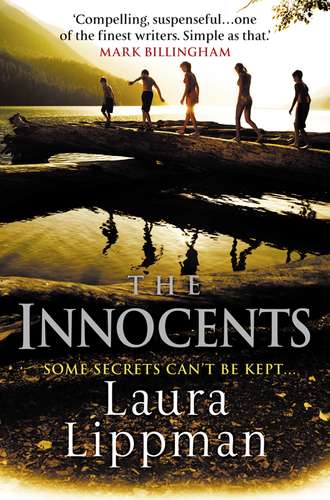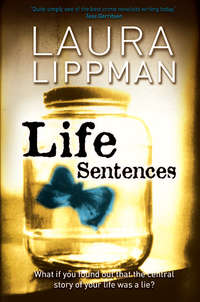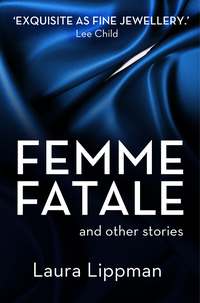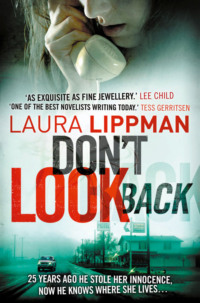
Полная версия
The Innocents
“She was out of it the past two days. She wouldn’t have known you,” Fee said, meaning to comfort her. Or did she? To this day, Gwen can’t help wondering. With her dark hair and eyes, Fee looks exactly like Clem and Miller, which is a kind way of saying she is plain. Although not what anyone would call butch, she always disdained Gwen’s girly-girly ways, her flirtatious style of wheedling. She probably resented the way that Gwen was raised practically as an only child, not to mention the duties thrust upon Fee as Gwen’s primary babysitter, starting at the much too young age of eleven. That was when Tally started going to the ceramics studio in Mount Washington, or was it the weavers’ collective in Clarksville?
Gwen feels bad now, looking back, at how she acted. It was as if her mother’s death had happened only to her. And, maybe a little bit, to her father. But not to Miller and Fee. Her brother and sister, edging toward thirty, seemed old to her. They had jobs, spouses, children. Well, Miller had all three, and Fee was living with the woman she would one day marry. It was part of the natural order for them to experience death. But not Gwen. She moped around the house through Christmas break, of help to no one, unaware that there was any help to be provided, that death required anything besides mourning. Then she went back to school and wrote a lot of poetry in between her journalism assignments, never stopping to consider that Miller and Fee had lost their mother, too. She did think a lot about how Mickey failed to come by over the holidays, which functioned as an open-ended mourning period. No Mickey, although she had remained in the area when her mother moved to Florida. The senior Hallorans made a dutiful visit. Mrs. Halloran brought crab dip, which Gwen’s father wasn’t sure was safe to eat.
That was almost twenty-five years ago. A quarter of a century, and now Gwen is approaching the half-century mark, only five years out. She realizes some of her mother’s things must still be in the house. True, the jewelry was divided between the sisters long ago, not that Fee has much use for Tally’s jewelry, although she insisted on taking a coral squash blossom ring that Gwen coveted. Other things have been boxed up, donated to thrift stores. But the closet is still quite full, and Gwen keeps returning to it, losing hours in it. Each dress has a memory. Some even hold on to Tally’s signature perfume, Shalimar.
So Gwen is sorting through her mother’s clothes, putting aside items for Annabelle’s dress-up chest and appropriating some more timeless things for herself—cashmere sweaters, a fabulous wool cape—when the doorbell rings. She shouts to her father’s aide that she will answer it and runs down the stairs to throw open the door.
“Mrs. Halloran!”
She looks awful, understandably. Puffy, sleepless, possibly unwashed. But she carries a dish in her hands. More crab dip?
“You didn’t have to do this,” Gwen says. “I should be doing this for you.”
“Oh, it helped take my mind off things.” She looks around, as if in search of something.
“Would you like a cup of tea?” Gwen asks. “My father is napping, but if he wakes up, he’ll be happy to visit with us.”
“Tea would be nice.”
Gwen takes the plate to the kitchen and peels back the aluminum foil. They are store-bought cookies, she recognizes them from the wake. And not even good store-bought cookies. How had throwing these leftovers on a plate helped to distract Mrs. Halloran from anything? Gwen doesn’t want to be unkind, but there is something hostile about these cookies. She struggles with the etiquette of the moment. What would be ruder: putting them out with the tea or leaving them in the kitchen? Gwen arranges them on an elaborate pink-patterned plate, then washes Mrs. Halloran’s white plastic one while the tea brews. She assumed Mrs. Halloran would follow her into the kitchen, but from the sound of things, she is moving around the living room, probably wondering at the disarray of Clem’s books, still in stacks on the floor. Gwen hopes she doesn’t bother her father, asleep in the sunroom at the rear of the house.
They have tea in the dining room, at the heavy Swedish modern table that was out of style almost as soon as Tally bought it. Now it’s finally vintage.
“So,” Mrs. Halloran says, “I guess the young people had quite a night of it.”
“The young people?” Gwen is honestly confused, assumes that Mrs. Halloran is referring to Tim’s daughters, three steely-eyed beauties who give the impression of having said something devastating about someone else in the room. Go-Go’s children are little more than babies, and Sean’s son did not make the trip from Florida. Neither did his wife, come to think of it. There was something about a commitment on his son’s part, something he couldn’t get out of without ruining it for others—a big game, a performance?—and Sean’s wife stayed behind with him.
“You and the boys,” Mrs. Halloran clarifies. “And that Mickey.”
“Thanks for calling me young,” Gwen says. “But I didn’t go out. I had to check on my daughter. Even though I’m staying here, I drive home to put her to bed each night.”
So don’t gossip about me, Doris Halloran. Of course Mrs. Halloran would be within her rights to speculate about Gwen’s marriage. But she can’t know based on the information available to her, so she would be gossiping.
“I just assumed you were all together,” Mrs. Halloran says. “He said you were all out late, talking about old times, and he didn’t think he should drive, so he stayed over at Tim’s.”
“Sean always was the sensible one,” Gwen says.
“Yes, he’s a good boy.” Doris Halloran sips her tea, takes one of the cookies, but holds it in her hand, as if she can’t remember what it is. “All my boys are good boys.”
Gwen notes the present tense in her voice. It is a lie twice-over. Go-Go is no longer anything, and he was never good, everyone knows that. Not bad, but not good. The statement is like this plate of stale, off-brand cookies. Baffling, challenging, passive-aggressive. She decides to agree. “Yes.”
“You know—” Mrs. Halloran says, then pauses significantly, and Gwen realizes she doesn’t know, that she has no idea what Mrs. Halloran is going to say next and that’s actually unusual in life. Even when she told Karl she was leaving him, he wasn’t particularly surprised. “You know, I called Tim’s wife this morning.”
“Is everything okay?”
“There was a pair of gloves, I thought it belonged to one of the girls. Pink ones. Tim said they might be Lisa’s. The funny thing is that Arlene didn’t mention that Sean had stayed over.”
Gwen feels she’s being taunted, but she’s not sure how or why. The only thing she knows is that she wasn’t with the boys last night. But maybe that’s what Mrs. Halloran is trying to find out? The old loyalties kick in, as automatic and destructive as ever.
“Maybe she assumed that he had called you.”
“Why would she assume that?”
“Because Sean has always been the conscientious one, of all of us. He always does the right thing.”
This, apparently, is what Mrs. Halloran has come to hear, or close enough. She finishes her tea and leaves, taking with her the washed plate, her little Trojan horse of an offering.
Gwen goes into the sunroom, now the sickroom. Her father’s awake, alert, staring into space. It’s the aide who sleeps, dozing in her chair, her head bent at a painful angle.
“Poor Doris,” he says in a whisper, careful not to wake the woman who is supposed to be caring for him. So he knows Mrs. Halloran came to call, probably heard their entire conversation but didn’t ask to join them. “I do feel awful that I couldn’t go to the funeral.”
“That’s okay, Dad. I was there. I represented for our family.”
“It’s unnatural,” he says. “To outlive one’s child.”
Gwen knows he’s right, she said as much at the wake. But there’s a part of her that finds it surprising that Go-Go made it to forty. She sees him in her memories, scurrying along high, flimsy branches near power lines, taking his sled down slopes far scarier than so-called Suicide Hill. There was never any joy in his risk taking, come to think of it. He wanted to fall, to be shocked, to hit a tree. Go-Go has been reaching for things and running into things as long as she’s known him. Could a little boy have a death wish? If so, did Go-Go always have it, or was it something that came later?
“There are no good deaths,” Gwen says, just to say something.
“Oh, no,” her father says, adamant. “There are some. You haven’t known any, yet. But I’m planning on one.”
“Don’t talk that way.”
Her father smiles. “You look so like your mother. You should keep that.”
Gwen glances down. She hasn’t registered the fact that she’s wearing one of her mother’s old cashmere cardigans, truly old, one she must have worn as a teenager, embroidered with pearls and sequins. When the doorbell rang, she was in too much of a hurry to take it off. Now she feels guilty, as if she’s been caught rummaging through things that are rightfully her father’s, not hers, waiting for the good death he has just promised her.
“I didn’t mean—I never realized there was so much of her stuff left, and I thought I might organize it.”
“You should go home, Gwen.”
“I’ll leave in a little bit. No use fighting the traffic.”
“I mean to stay.”
“No.”
“Nothing’s perfect,” her father says. “Nobody’s perfect.”
“Karl is. Haven’t you heard? Haven’t you seen his television alter ego, solving everyone’s problems?”
Her father sighs.
“You told me not to marry him.”
“I told you what it would be like to be married to a surgeon. That’s not the same thing. Now there’s a child. Think of her.”
“Maybe I am thinking of her.”
“When we were young, your mother and I—well, not young exactly, I was never young with her, but younger—and you were the only one left at home, there were so many divorces all of a sudden, so many parents who thought their children couldn’t be happy unless they, the parents, were happy. I’m afraid that’s simply not true.”
“You had a great marriage, Dad. It’s not fair to lecture others on marriage, when you had such a good one.”
Her father doesn’t answer right away. “I see your point of view,” he says, forever fair and evenhanded. Later, she will parse these words. Not: you’re right. But: I see your point of view. Was he trying to suggest that his marriage, like hers, might have looked better to those outside it than those in it? But, no, that’s impossible. Everyone knows that the Robisons loved each other madly.
Autumn 1978–Winter 1979
CHAPTER TEN
We would have quickly grown tired of Chicken George except for one thing: he turned out to be mysterious. At least, that’s the way we saw it: He cultivated mystery, excited our curiosity. He was vague in the face of all questions, no matter how benign. How he had come to live in this house, when he had learned the guitar. How old he was. (Go-Go asked the last one. The rest of us knew better than to ask a grown-up’s age.) He avoided all questions and had few of his own, other than: “What did you bring me?” Still, it would have been better, harsh as it sounds, if we had stopped visiting him. It’s nice to think so, at any rate, because if we had tired of him, then things might have gone differently. And this is a story about things we wished had gone differently. Aren’t all stories?
Anyway, Chicken George had a way of disappearing. The first time, it was November, and we assumed it was weather-related. The wind had started to kick up, the pleasant tang of October had given way to a steady dank cold. Weather was more reliable then. This is not memory, but hard scientific fact. The weather of our childhood was part of an unusually temperate time on our planet, with fewer extreme variations. The things we have seen in recent years—the events of just the past year, with almost a hundred inches of snow in Baltimore and floods, not to mention volcanoes and earthquakes, birds falling from the skies—might well be connected to climate change, the wear and tear that humans wreak on a planet. We are not here to argue science. But weather was more predictable then, and when it turned cold, it stayed cold, so cold the pond froze for days, even weeks of ice-skating. It made sense that Chicken George would disappear during such weather. Not that one could tell, by the look of the cabin, that anything had changed. It was as we had first found it, complete with the chickens in the yard and clothing on the line. Go-Go was the one who thought to look for his guitar. That was missing, too.
“What about the chickens?” Gwen asked.
“What about them?” countered Tim.
“They’ll die out here. Animals will eat them.”
“So what? Chicken George was going to eat them, too. What’s the difference?”
“But Chicken George would have been more humane.”
Tim laughed. “You think so, Gwen? You think that snapping an animal’s neck is that much more humane than being snatched up in the jaws of a dog or a fox? Dead is dead.”
Go-Go liked that. “Dead is dead,” he raved. “Dead is dead!” He began throwing rocks at the chickens, then running among them, scattering them. But those chickens were tough. They spread out, giving Go-Go room, but they didn’t disperse.
Mickey and Sean had been quiet throughout, systematically looking through George’s things, trying to find clues. Mickey, although uninterested in school, had a talent for deduction. Gwen’s father, noticing how she examined facts and reached conclusions, had tried to interest her in the works of Arthur Conan Doyle, but she had no patience for Sherlock Holmes. Or Nancy Drew, or Trixie Belden, or books in general. She was disdainful of people who read but not in a defensive, anti-intellectual way. She thought reading was a ruse, a completely wasteful activity. If Mickey were the kind of person who trafficked in similes or metaphors, she might have compared reading to rules such as not swimming an hour after a meal, or never going out of the house with wet hair. Instead, she just didn’t read and was baffled by those who did. She didn’t like television much, either. Mickey plain didn’t like sitting still. She wanted to make things happen. She wanted to see if she could jump from mossy stone to mossy stone without falling. She wanted to poke snapping turtles with sticks, and if one snapped, well, that was the point. She would have liked to live like Chicken George—in a cabin, accountable only to herself, although preferably with indoor plumbing.
Конец ознакомительного фрагмента.
Текст предоставлен ООО «ЛитРес».
Прочитайте эту книгу целиком, купив полную легальную версию на ЛитРес.
Безопасно оплатить книгу можно банковской картой Visa, MasterCard, Maestro, со счета мобильного телефона, с платежного терминала, в салоне МТС или Связной, через PayPal, WebMoney, Яндекс.Деньги, QIWI Кошелек, бонусными картами или другим удобным Вам способом.






